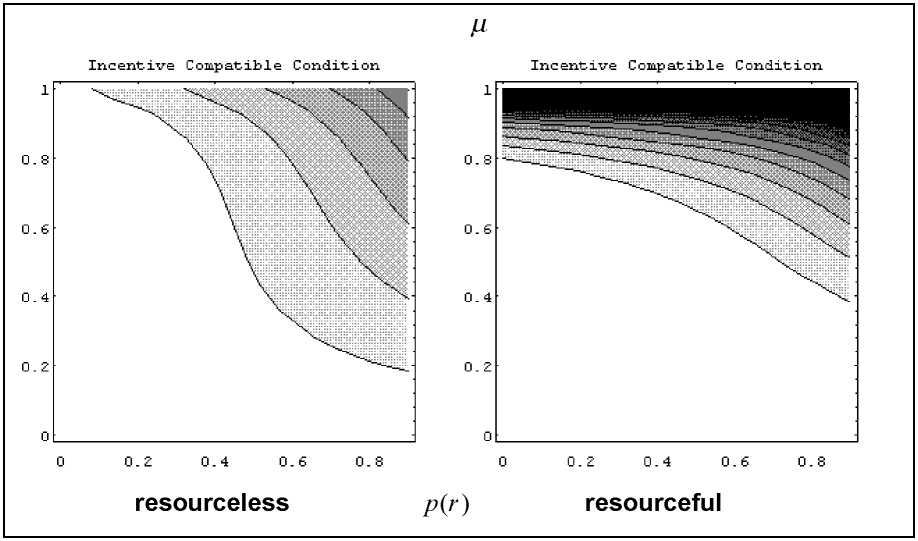Figure 4
Figure 3

Some conclusions can be drawn from the observation of both figures. Looking at similarities,
they show that, for an appropriate discount factor, co-operation can be the result of the game.
Incumbent’s myopia undermines the incentives for co-operation. They also indicate that the
higher the value of current revenues, and consequently p(r), the better the prospects for the
emergence of co-operation. In other words, facing an unfavourable external context the
incumbent is more willing to break co-operation than in a period of buoyant external revenues.
The possibility of defeat weights more heavily than the possibility of undermining the length of
the game.
When the attention is focused on differences, the comparison between both calculations shows
that when the chances of re-election are low, a resourceful incumbent in order to co-operate
demands a lower value of μ than a poorer one. That is, the resourceless incumbent is more
sensitive to myopia than the wealthy one. Conversely, a high amount of current revenues (a high
p(r)) has a greater effect in improving the conditions for co-operation in a poor incumbent than
in a wealthy one. So when the electoral value of the stock is high, co-operation prospects are
less sensitive to high levels of current revenues.
More intriguing information
1. Accurate and robust image superresolution by neural processing of local image representations2. Popular Conceptions of Nationhood in Old and New European
3. Tariff Escalation and Invasive Species Risk
4. The name is absent
5. Spectral density bandwith choice and prewightening in the estimation of heteroskadasticity and autocorrelation consistent covariance matrices in panel data models
6. Unemployment in an Interdependent World
7. The name is absent
8. Regional Intergration and Migration: An Economic Geography Model with Hetergenous Labour Force
9. The name is absent
10. The name is absent